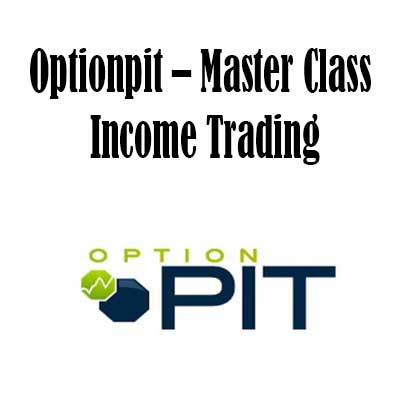David Blake – Pension Finance
Description
Pension Finance, David Blake – Pension Finance, Pension Finance download, David Blake – Pension Finance review, Pension Finance free torent
David Blake – Pension Finance
This book provides a secure grounding in the theory and practice of finance insofar as it deals with pension matters. By using it, the reader will understand the various types of investment assets;
* the allocation of personal wealth to different asset classes
* corporate pension finance
* the financial aspects of defined contribution pension plans during both the accumulation and distribution phases
* the financial aspects of defined benefit pension plans
* the role of pension funds and pension fund management
* pension fund performance measurement and attribution
* risk management in pension funds
Table of Contents
Preface.
1 Investment Assets.Held by Pension Funds.
1.1 Money-market securities.
1.2 Bonds and loans.
1.3 Shares.
1.4 Collective investment vehicles.
1.5 Real assets.
1.6 Derivatives.
1.7 Alternative investments.
1.8 Socially responsible investment.
1.9 Global custody.
1.10 Different asset characteristics and uses.
1.11 Conclusion.
Questions.
References.
Appendix A: Standard deviation, value-at-risk and correlation.
2 Personal Finance: The Allocation of Personal Wealth to Different Asset Classes.
2.1 Introduction.
2.2 Modelling the allocation of personal wealth to different asset classes.
2.3 Conclusion.
Questions.
References.
3 Corporate Pension Finance.
3.1 The valuation of pension liabilities: Differences between the actuarial and economic approaches.
3.2 Pensions and the company balance sheet: Differences between the accounting and economic approaches.
3.3 The asset allocation of the pension fund.
3.4 The relationship between the pension fund and the sponsoring company’s profitability, credit rating and share price.
3.5 Conclusion.
Questions.
References.
4 Defined Contribution Pension Schemes – The Accumulation Phase.
4.1 The optimal design of DC schemes during the accumulation phase.
4.2 Charges.
4.3 Persistency.
4.4 Conclusions.
Questions.
Appendix A: Charges.
References.
5 Defined Contribution Pension Schemes – The Distribution Phase.
5.1 Annuities.
5.2 The optimal design of DC schemes during the distribution phase.
5.3 Conclusion.
Questions.
References.
6 Defined Benefit Pension Schemes.
6.1 Types of defined benefit scheme.
6.2 Defined benefit liabilities.
6.3 The option composition of pension schemes.
6.4 Valuing the options.
6.5 The pension scheme preferences of members, sponsors and fund managers.
6.6 Conclusion.
Questions.
References.
7 Pension Fund Management.
7.1 The role of a pension fund.
7.2 The functions of a pension fund manager.
7.3 Fund management styles.
7.4 Different fund management strategies for defined benefit and defined contribution schemes.
7.5 The fund manager’s relationship with the trustees.
7.6 Passive fund management.
7.7 Active fund management.
7.8 Asset-liability management.
7.9 The Myners review of institutional investment.
7.10 Conclusion.
Questions.
References.
Appendix A: Investment-objectives questionnaire.
Appendix B: Derivation of the optimal contribution rate and asset allocation in a defined benefit pension fund.
8 Pension Fund Performance Measurement and Attribution.
8.1 Ex-post returns.
8.2 Benchmarks of comparison for actively managed funds.
8.3 Risk-adjusted measure of portfolio performance for actively managed funds.
8.4 Performance attribution for actively managed funds.
8.5 Liability-driven performance attribution.
8.6 Realised investment performance.
8.7 Performance-related fund management fees.
8.8 How frequently should fund managers be assessed?.
8.9 Conclusions.
Questions.
References.
Appendix A: Deriving the power function.
9 Risk Management in Pension Funds.
9.1 The objective of hedging.
9.2 Hedging with futures.
9.3 Hedging with options.
9.4 Hedging with swaps.
9.5 Hedging longevity risk.
9.6 Conclusion.
Questions.
References.
10 Pension Fund Insurance.
10.1 The Pension Protection Fund.
10.2 What the Pension Protection Fund can learn from other financial institutions and compensation schemes.
10.3 The risks facing the PPF.
10.4 Dealing with these risks.
10.5 Conclusion.
Questions.
References.
Appendix A: The Marcus (1987) and Vanderhei (1990) models.
Appendix A: Financial Arithmetic.
Appendix B: Yields and Yields Curves.
Appendix C: Duration and Convexity.
Index.
Author Information
Dr DAVID BLAKE is Professor of Pension Economics and Director of the Pensions Institute at Cass Business School, London, and Chairman of Square Mile Consultants, a training and research consultancy. He was formerly Director of the Securities Industry Programme at City University Business School, Research Fellow at both the London Business School and the London School of Economics and Professor of Financial Economics at Birkbeck College, University of London. He is consultant to many organisations, including Merrill Lynch, Deutsche Bank, Union Bank of Switzerland, Paribas Capital Markets, McKinsey & Co., the Office of Fair Trading, the Office for National Statistics, the Government Actuary’s Department, the National Audit Office, the Department for Work and Pensions, HM Treasury, the Bank of England, the Prime Minister’s Policy Directorate and the World Bank. In June 1996, he established the Pensions Institute, which undertakes high-quality research on all pension-related issues and publishes details of its research activities on the internet (https://www.pensions-institute.org.
Reviews
“Informative without being patronizing and set out in a logical sequence with each chapter containing questions to help the reader consolidate what they have just learnt.” (Pensions Age, December 2006)
“What makes this book unique is the discussion of many pension specific subjects that are not covered in other books.” (Investments & Pensions Europe, March 2007)
“…this book provides a comprehensive and secure grounding in the theory and practice of finance.” (Pensions World,July 2007)
Our Policies
A. Product Quality
We will provide GOOD quality of courses fast. If any issue, email: [email protected].
We sure that your problem will be support as soon as possible.
B. Digital Shipping Proceess
After your payment, we will review your payment, Then, we will send you PCLOUD LINK OF COURSES through email in 3 – 8 hours. If any issue, we will inform you as soon as possible.








